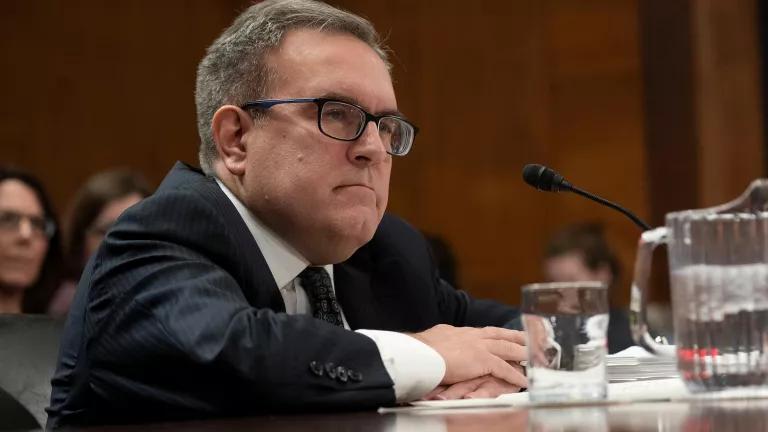“Polluter Panels” Officially Allowed to Sway Michigan’s Environmental Law

The step backward will make it much harder to hold industry accountable for Michiganders’ health and environment.
Just two weeks after Michigan enacted stronger protections against lead contamination in its drinking water, Governor Rick Snyder gave polluters a formal say in creating the state’s environmental guidelines. “The fox isn’t even pretending like it will guard the henhouse,” says Cyndi Roper, a senior policy advocate at NRDC.
Snyder signed two bills that allow polluting industries to be on panels that have the power to override the Michigan Department of Environmental Quality (MDEQ), an agency responsible for shaping critical policy, like the new Lead and Copper Rule. Not only that, these bills also cut out local communities—those people who would be most affected by the panel’s decisions—from the final decision-making process.
With corporate interests at stake, it’s unlikely the new polluter panels will take the side of public health on issues like toxic waste cleanups, sewage and toxic chemical dumping, clean air, or protection of the Great Lakes. “The MDEQ Scorecard on Governor Snyder’s Dashboard shows the agency denied less than one-half of 1 percent of pollution permit requests last year,” Roper says. “That apparently wasn’t business-friendly enough, so the polluter panels will ensure profits are put ahead of Michiganders’ health.
The decision is a significant step backward for a state still recovering from high-profile environmental crises, like the drinking water crisis in Flint. Rather than address the MDEQ’s troubled history by increasing funding and staffing, the state has decided to give polluters the reins. “The people of Michigan deserve better than polluter panels making decisions about the quality of their air, water and health,” Roper says.



